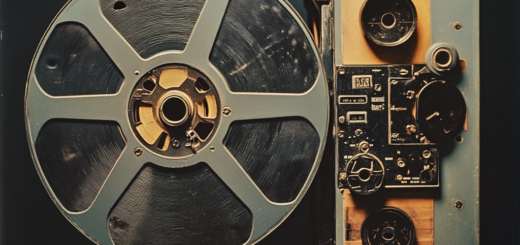How does the cultural experience affect the personality
Understanding cultural experience as a key element of personality
Cultural experience plays an important role in shaping each person’s personality. It encompasses the totality of experiences that a person receives through interaction with the art, traditions, history, and cultural practices of their society. These experiences are not limited to conscious perception alone, but also include emotional reactions, sensations, and even unconscious impulses that affect our perception of the world and our own identity.
Cultural experience helps a person not only perceive the world, but also to realize their place in it. Acquaintance with works of art, participation in cultural events, or even daily communication with the cultural environment become powerful means of identity formation. Reflecting such experiences in personal beliefs and preferences, a person becomes part of a cultural tradition, which affects his inner world and behavior.
How art and culture shape the perception of the world
Art and culture are the most important components in shaping the perception of the world. By applying various artistic means and forms, art makes it possible not only to see the world in a new perspective, but also to experience it on a deep emotional level. Music, painting, literature, theater and cinema allow a person to immerse himself in other realities, which helps to expand the horizons of understanding the world around him and other people.
The transformation of personal perception through cultural practices takes place not only on an intellectual level, but also on an emotional one. Art creates a space for reflection, empathy, and personal interpretation. Paintings, songs, and movies can be a powerful tool that changes the way you think about life, expanding the scope of what is possible and imagined.
Cultural experiences and their impact on the psycho-emotional state
Cultural experience has a significant impact on a person’s psycho-emotional state. The ability to experience art and cultural events can be associated with deep inner processes such as feelings, self-determination, and harmony. Immersion in works of art, participation in cultural events, or interaction with the cultural environment help a person gain emotional freedom and express their feelings and experiences.
Every piece of art causes emotional reactions, and sometimes these reactions can be so strong that they can change our emotional state for a long time. This may be due to the fact that art helps a person to reveal his hidden experiences, to understand the feelings and experiences that he has experienced. The emotional impact of art allows a person to restore mental balance, find solace and inner harmony, and also helps to express those feelings that are difficult to express in words.
The role of cultural experience in shaping values and worldviews
Cultural experiences are an important element in shaping personal values and worldviews. It is through art and culture that people often face moral dilemmas, philosophical concepts, and value choices. Through cultural practices, a person realizes which values are close to him and which ideas he is ready to support in life. Films, books, theatrical productions, and art exhibitions often raise important social and moral issues.
This makes people think about their attitude to certain phenomena in society, about how they themselves can influence changes in the world. The diversity of cultural forms allows each individual to find his own way in life, and the experiences associated with the perception of works of art help to build a system of values and priorities. Cultural experience not only contributes to the understanding of various philosophical, ethical and political theories, but also forms personal beliefs.
Mechanisms of personality transformation through cultural experiences
The mechanism of personality transformation through cultural experiences is multifaceted. At first, cultural experience causes feelings and emotional reactions in a person, which at a certain stage become conscious. After that, the process of internalization takes place, when the experiences experienced merge into personal experience, become part of a value system, and form a worldview. An example of such a process is the perception of great works of art.
After watching a movie, visiting an exhibition, or reading a book, a person can be deeply impressed and begin to rethink their relationship with the outside world. This process can be long, but it is based on a gradual transformation of personal attitudes, habits, and beliefs. Through this mechanism, a person changes, becoming more mature and multifaceted. Cultural experiences can also be associated with the expansion of psycho-emotional horizons, going beyond the limits of everyday experience.
How cultural experience contributes to social integration
Cultural experience plays a key role in the integration of a person into society and the establishment of interpersonal relationships. The study of cultural norms, traditions, and behavioral patterns in different social groups helps a person adapt and interact with people from different cultural and social backgrounds. This not only facilitates building relationships, but also promotes the development of collective consciousness and social interaction.
The main advantages of cultural experience:
- Adaptation in various social groups — the study of cultural characteristics helps to better understand and accept various social norms and traditions.
- Establishing interpersonal connections — awareness of cultural differences and commonalities contributes to a more harmonious interaction with people from different social strata.
- The development of collective consciousness — culture helps to form a common understanding and strengthen mutual understanding between people.
- Increasing social integration — the active perception of cultural values opens up new opportunities for social and professional adaptation.
- Building a sense of belonging — Participating in cultural events promotes a sense of connection to a community, nation, and culture.
Questions and answers
Cultural experience helps a person to form his identity, develop personal values and perception of the world, and also influences his psycho-emotional state and behavior.
Art can evoke a wide range of emotions, from joy and inspiration to fear and disappointment. These experiences help you become aware of your inner feelings and work with them.
Through art, a person is confronted with important philosophical and moral issues, which helps to form a system of values and a conscious attitude to life.
Cultural experiences contribute to a better understanding of different social strata, help to adapt to new social conditions, and strengthen interpersonal relationships.
Experiences through art can become a catalyst for personal change, expanding the horizons of perception and contributing to a change in attitudes and behavior in society.



